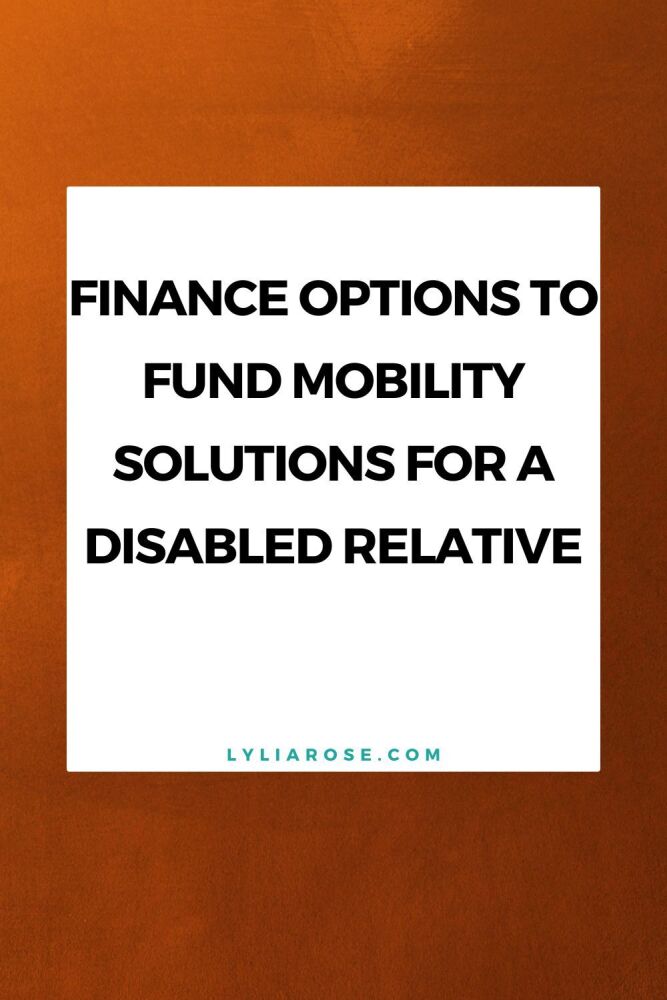Finance options to fund mobility solutions for a disabled relative
Posted on
If you have a disabled relative with mobility issues, then it’s likely they’ll need some mobility aids to help them navigate day-to-day life safely and with ease.
This could be anything from a ramp and handle bar at a front door, to a wheelchair accessible vehicle, a walk in bath or domestic homelifts.
There are lots of mobility aids available to help make life easier for those who need them.
The only question is how do people finance these mobility solutions? Many of them are pretty costly, but the good news is your relative, or the person they live with, might be entitled to financial help.
Read on to learn about some of the different ways to finance mobility solutions.

Motability Scheme
Motability is a national charity that can help towards the cost of a vehicle, adaptions to a vehicle and even driving lessons through grants and their support scheme.
In 2019 they provided £20 million in grants to 7500 of their Motability Scheme customers.
The Motability Scheme lets a person swap their mobility allowance for a wheelchair accessible vehicle through one of their partners.
Allied Mobility is one of Motability’s premium partners and stock a leading range of new and used wheelchair accessible vehicles, offering home visits and demonstrations.
Disabled Facilities Grants
If changes need to be made to a home for accessibility then a grant from a local council called the Disabled Facilities Grant could cover some or all of the cost.
How much a person is entitled to will depend on household income and savings, but in England, for example, grants of up to £30,000 are available.
These grants could be used to widen doors, install ramps, add a downstairs bathroom, install a stair lift or for many other adaptions that are needed in the home for mobility and accessibility.
Click here to enter your postcode and apply for the Disabled Facilities Grant.
Charitable grants
There are numerous charities in the UK that offer grants to help fund the cost of mobility aids for those who need them. These companies might be able to help fund the cost of wheelchairs and scooters, for example.
The charities often specialise in a particular need, so if you have a spinal injury then Aspire would be the charity to contact as they only support people with spinal injury.
Fundraising
Another great option to raise money for mobility solutions for a disabled relative is through fundraising.
There are dedicated fundraising platforms online such as JustGiving that make setting up a donation page online easy and free. Share with friends, family and colleagues to get the word out.
Other ideas are a sponsored challenge, car boot sale or ticketed event. It doesn’t have to be complex; it could be a family BBQ or dinner party that costs a token amount to attend.
Equity release
For those unable to secure grants or raise the funds to cover the costs of necessary adaptions or mobility aids, then equity release might be the only option.
Equity release is a way of releasing the money tied up in your home in either a lump sum cash payment or smaller drawdown payments.
The homeowner is usually able to stay living in the property until they pass away or move into long-term care.
Whilst it can be used as a way of funding mobility aids and home adaptions for a disabled person, it’s worth considering other options first. Equity release is a lifelong commitment and can restrict future house moves. It might be a better option to move into a house that is better suited for mobility.
